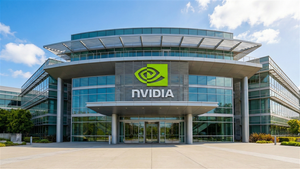The Evolution of Lung Cancer Research
We have made huge strides in research across lung cancer types, stages and patient groups
SOURCE: Bristol Myers Squibb Company
DESCRIPTION:
Abderrahim Oukessou, MD, our vice president and Thoracic Cancers Development Lead, sat down with Adam Schoenfeld, MD, medical oncologist, Memorial Sloan Kettering Cancer Center, to discuss how the landscape of lung cancer research has transformed in recent years.
Q: What progress has been made in lung cancer research? How has the latest research changed the meaning of a lung cancer diagnosis compared to five years ago?
Dr. Oukessou: There has been tremendous progress over the last few years in lung cancer research. In my opinion, two of the most important advances are immunotherapies and targeted therapies, which have changed the way we treat metastatic disease. We are also starting to see a transformation in the way we treat earlier stages of non-small cell lung cancer (NSCLC), with a focus on researching immunotherapies both before and after surgery.
Dr. Schoenfeld: For a patient, a diagnosis of lung cancer is entirely different compared to five years ago, thanks to truly remarkable progress in research. Lung cancer is not just one diagnosis with a one-size-fits-all approach; now, we are able to tailor therapies for each individual subtype of lung cancer.
Q: Focusing specifically on metastatic cancers, what have been some of the key developments and advances for patients?
Dr. Oukessou: We’ve seen significant advancements for patients across lung cancer types. Extended follow-up data from clinical trials are showing that, with recent advances, particularly immunotherapies, patients with metastatic disease are now more likely to have long-term survival benefits with longer duration of responses. Another hard-to-treat cancer, malignant plural mesothelioma, has also recently benefited from combination immunotherapies, after more than 15 years where no progress was made.
Dr. Schoenfeld: For me, I’ve been so excited to see how we can potentially provide patients with new and even chemotherapy-free options that offer clear clinical benefits, and similarly, how we can now molecularly profile a patient’s tumor and target vulnerabilities and mutations.
Q: Why is it important to investigate treatment options in different patient groups with high unmet needs?
Dr. Oukessou: Although most lung cancer patients are being treated similarly in the absence of driver mutations, clinical outcomes can be quite different, particularly in different subgroups. We know that immunotherapies work well in some patients, but less in others. It’s essential that we continue looking at data across these different subgroups to help find innovative solutions for all patients.
Dr. Schoenfeld: Despite recent advances, there are a number of subtypes of lung cancer in patient populations that do not respond well to current therapies and it’s absolutely critical to understand biologically why these tumors do not respond. We need to translate the successes we have observed in other lung cancer settings in the patient groups with continued high unmet need, such as squamous histology tumors or tumors that have spread to the brain or liver.
Q: What options are being explored for earlier stages of lung cancer? Why is this area of research important for patients?
Dr. Oukessou: We developed deep scientific expertise from our pioneering role in immunotherapy and are applying our understanding of the biology of the immune system to fight cancer in earlier stages, before it has spread. Recurrence is a life-changing event for patients that marks the shift from a potentially curable to incurable state. By researching immunotherapy in earlier stages of lung cancer, we hope to change the lives of patients by helping them live longer with a lower chance of the cancer returning.
Dr. Schoenfeld: This is an absolutely critical area to study. Earlier-stage lung cancer presents a significant opportunity to intervene in the disease course, when patients face a very high risk of recurrence. I’ve been excited to see research in the neoadjuvant setting, before surgery, and how that can be an opportunity to improve outcomes and advance the treatment of lung cancer in earlier stages.
Q: Where do you think the field of study and treatment is headed for lung cancer?
Dr. Oukessou: Lung cancer — and particularly management of NSCLC — will continue to benefit from the increasing understanding of tumor biology and evolving genomic profiling technology, which will hopefully guide clinical research efforts and ultimately inform treatment decisions, particularly as new agents, including a new generation of immunotherapies or targeted therapy, are being investigated.
Dr. Schoenfeld: There are several directions that the field of lung cancer can head. One area that I’m excited about is the prevention of immunotherapy resistance with the use of next-generation immunomodulators or potentially with cellular therapies, using a patient’s own living cells. I think this research might unlock doors to new options and improved outcomes for patients.
Disclosure: Dr. Schoenfeld has provided advisory services to Bristol Myers Squibb.
Learn more about Bristol Myers Squibb here
KEYWORDS: Ticker Symbol NYSE: BMY, Lung Cancer Research, non-small cell lung cancer, Abderrahim Oukessou, Adam Schoenfeld

More News
View More




Recent Quotes
View More
Quotes delayed at least 20 minutes.
By accessing this page, you agree to the Privacy Policy and Terms Of Service.